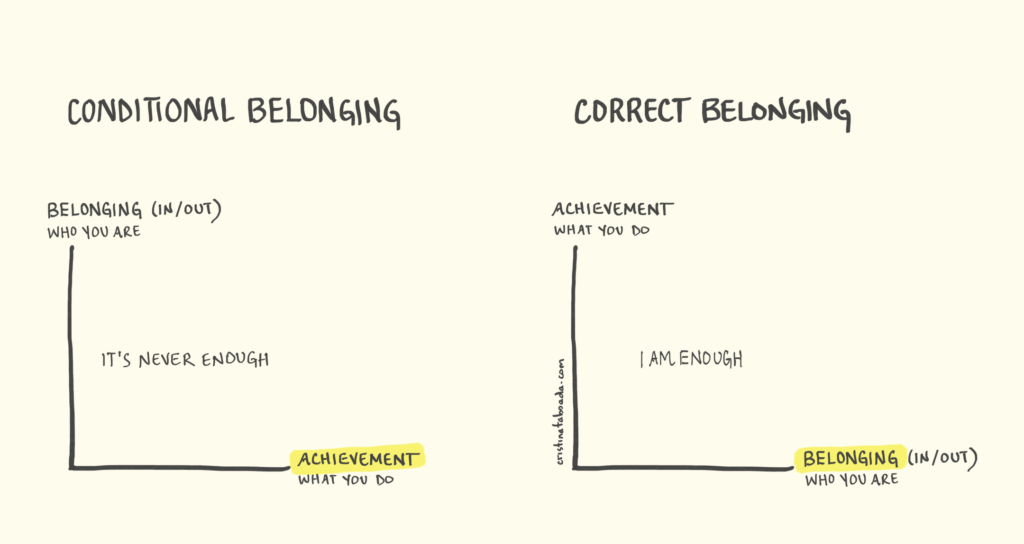Inside Impostor Syndrome: The Hidden Struggle Of High Achievers
Impostor syndrome is a persistent feeling of inadequacy despite external success, stemming from a disbelief in our accomplishments and abilities. Why do some of the most outwardly successful people feel insufficient?
A large part of the answer lies in how we feel about ourselves. Our sense of self worth is a product of both Belonging and Achievement. We learn to doubt ourselves when we believe we have to choose between the two, or mix up which comes first. The solve is to flip the order of priority and do both.
When ACHIEVEMENT is the independent variable (x-axis), we deeply believe that what we do determines who we are and how we belong—controlling for whether we are in or out of the group. This conditional belonging shows up as fluctuating self-esteem, bouts of impostor syndrome, existential angst, and a fear-driven sense that “it’s never enough,” because it never is. When we set up the game to belong through achievement, we have to keep performing. The show must go on.
When BELONGING is the independent variable (x-axis), we are “in” because of who we are, not what we do. This correct belonging-to-self shows up as steady self worth, the inner security that I am valuable and will be appreciated and recognized as long as I remain true to myself. Far from being a license for laziness, self worth drives our best performance, not out of fear but out of intrinsic motivation. When I value myself, I value my time, my work, my strengths, my limits, and my growth. “Enough” is no longer defined by the thing we do, it’s about the person we are. When we attempt to achieve from a place of self-belonging, the sky is the limit.
Self-belonging starts with self awareness: knowing who we are and how we’re seen (personal brand) so that, over time, our response to people and circumstances aligns more and more closely to our roles, rules, and goals.
How clearly can you articulate who you are and how you’re seen?

ABOUT PREDICTLY
predictly is a platform to share real-life stories and practical insights that develop your predictive intuition.
Each predictly post explores the gaps between what we intend to do and actually do, using behavioral models to anticipate common misunderstandings in human behavior and respond early.